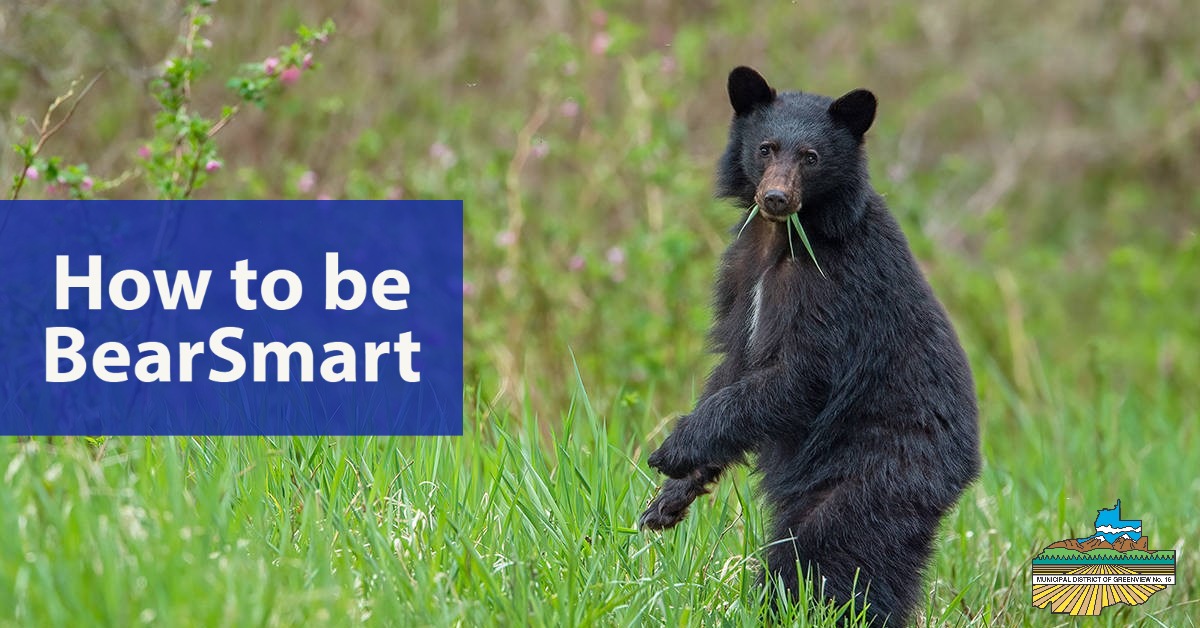It is important to be BearSmart when you’re spending time outdoors. Human activities, like camping have become more frequent in bear territory. As a result, bear habitats have become more fragments and encounters between bears and humans more common.
What you should know about Alberta bears:
- In the spring, summer and fall bears need to eat
enough to survive winter, when they spend between
four and six months in their dens. - Bears can consume up to 25,000 calories a day.
Most of their diet is actually low in calories—the
natural diet of a bear is 85 to 90 per cent plants and
berries and 10 to 15 per cent insects and mammals.
This means they must eat a lot, and often. - Bears use their intelligence, curiosity and keen
sense of smell to seek out new food sources. - Bears will overcome their natural wariness of people
to take advantage of the easy meals we provide
when we carelessly store our food, garbage
or pet food. These are “human-habituated” bears. - Bears have good memories. They remember where
to access food and how. In human-use places they
can apply these skills to get food from fruit trees,
containers, vehicles or buildings. - Human food can be irresistible to bears. Bears that
are rewarded with food when they access human-use places can become “food-conditioned.”
For more information on Alberta’s BearSmart Program, please visit: Alberta BearSmart Program


